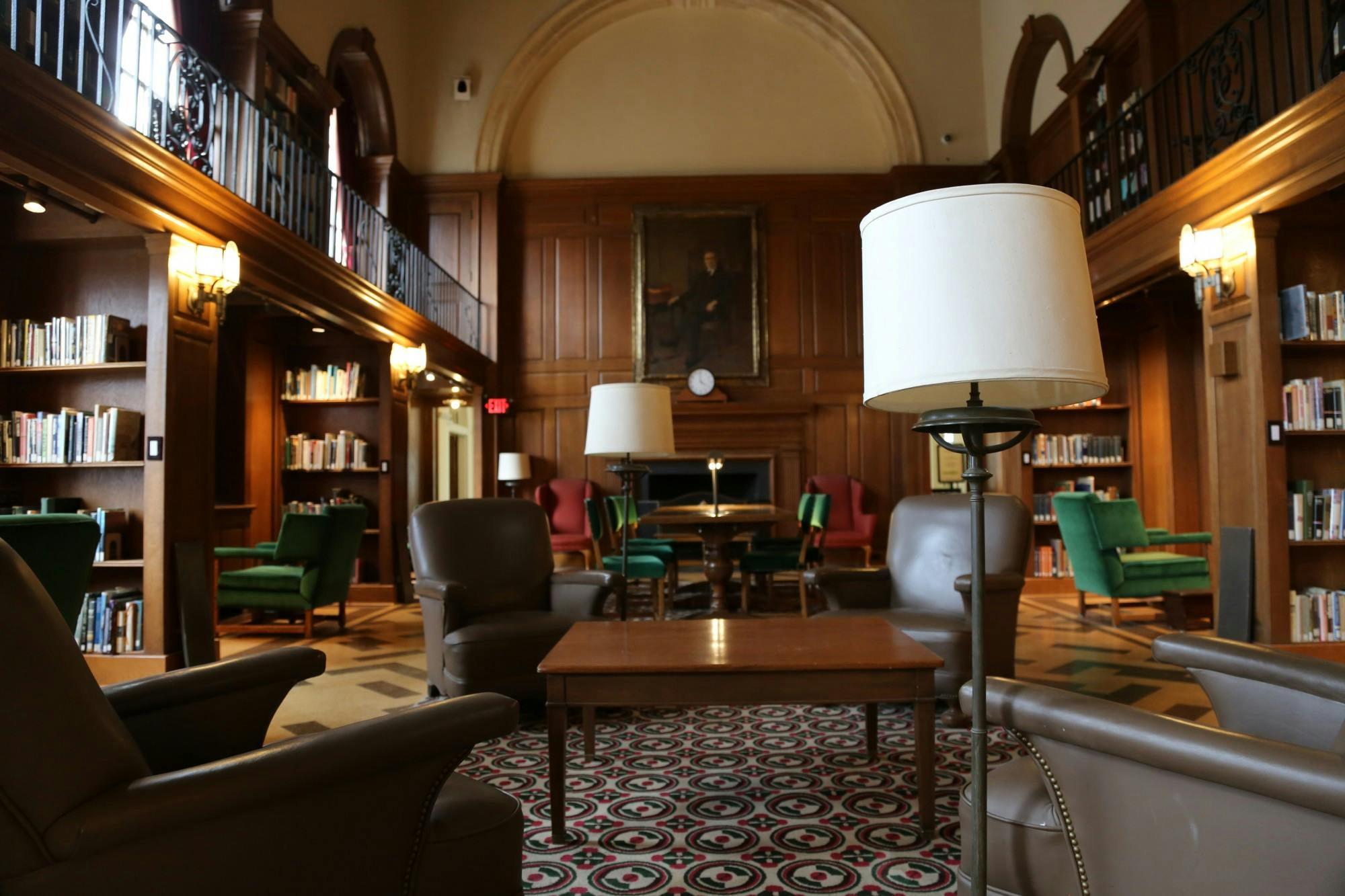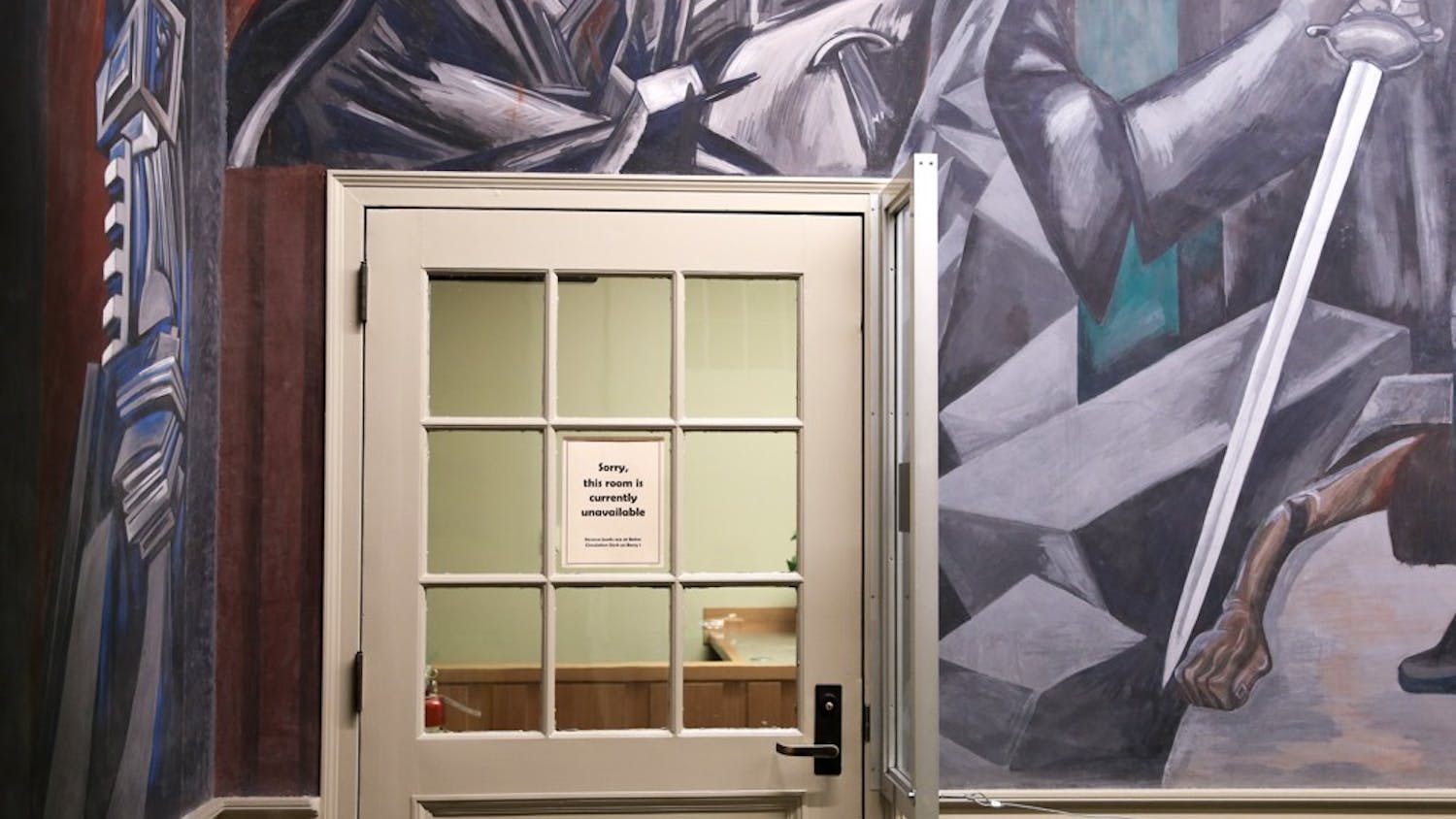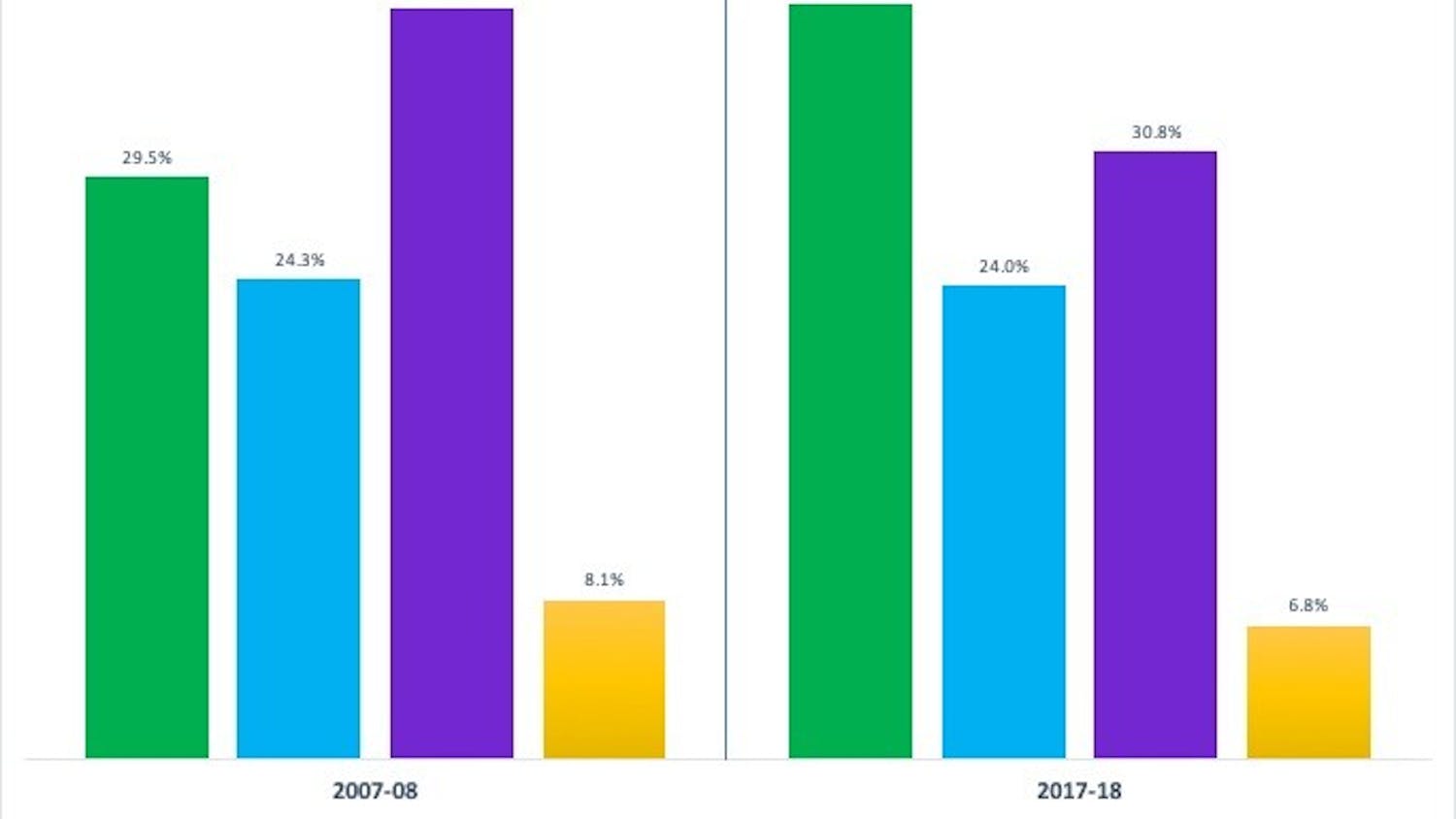While the Dartmouth Library has dramatically reduced its on-campus presence in response to COVID-19, the staff is still working to provide pickup services and expanded digital resources.
Members of the Dartmouth community can still access parts of the library and pick up physical copies of material in the library catalog on request, according to head of access and delivery services Dave Sturges.
He explained that both Novack Cafe and the 1902 Room remain open for students on campus, although he noted that these spaces have remained quiet.
“I haven’t seen a huge volume of students in those rooms,” Sturges said.
Sturges said that the library's pickup service has distributed hundreds of books per week this term.
The library’s website explains that students can submit requests online, as they are not permitted to browse the shelves themselves. It notes that borrowed books can be picked up and returned to a station set up in Novack without contact with library staff. The library has also suspended overdue book fees, according to its website.
Because many physical spaces are closed, the library has also increased its social media presence this term in an attempt to stay connected with the Dartmouth community. Among the library’s social media efforts, it has called for alumni to send in pictures from their time at the College to be posted on its Instagram and has released a set of downloadable Zoom backgrounds featuring different popular library locations, including the Tower Room, the Orozco Room and the stacks of Baker-Berry library..
However, library communications manager Tom Remp wrote in an email statement to The Dartmouth that library staff acknowledge that social media efforts “hardly” compare to being on campus.
For students and professors needing to use the library’s resources remotely, the library has expanded its online database. According to associate librarian for access and collection strategies Ken Peterson, the pandemic has given the library the chance to further invest in “robust e-offerings,” like online journal databases and electronic copies of physical books which may not have been previously available to Dartmouth students.
“The vendor and publisher community has been almost shockingly supportive of where we all are in terms of transitioning to remote,” Peterson said. “From a collections standpoint, we are in fairly good shape.”
Peterson clarified that the library is not digitizing physical collections en masse, but instead working with publishers to obtain electronic copies of the library’s texts. He added that students can request scanned chapters of physical books or journal articles through online consultation with a librarian.
Peterson also said that the library has successfully updated its Bloomberg terminals — which allow students access to financial data on a proprietary trading platform — to be remotely accessible. Previously, students could only access the platform by logging in to monitors in the Evans Map Room and the Feldberg Business & Engineering Library.
The Rauner Special Collections Library is also active this term, supporting 20 classes with scanned materials, videos and Zoom sessions, according to Remp.
Remp said that Rauner is also sending scanned documents to a historical accountability student research fellow, who in a regular term would use the resources of the archives to pursue a research project on an aspect of Dartmouth’s history concerning inclusivity or diversity.
Humanities and social sciences librarian Wendel Cox said that every subject taught at Dartmouth has dedicated subject librarians who are still available for digital appointments. Cox said that students can schedule these meetings through the library’s subject research guides on its website.
Jennifer West ’20, who is writing a thesis in government, said that she has worked remotely with Cox and other librarians to conduct and finalize research.
“I have some unusual source material,” West said. “[Cox] has been helpful in figuring out what sources and citations methods to use so I can properly attribute information.”
West, who is graduating at the end of this term, said that she plans to mail the 10 books she brought home back to the library as soon she is able to, under whatever protocol is “designed by the library” in the coming weeks.
Remp wrote that for graduating seniors, the library is working with facilities to collect library books from dorms.
“For students that have brought materials home, we will contact the students and offer a shipping option for return of materials,” Remp wrote. “The Dartmouth Library shipping department will email the student a UPS shipping label based on the number of items to return and an average weight of materials.”
Head of education and information services Amanda Scull said that she has seen a “steady rate” of questions coming in from students about their academic projects this term, including over 250 in-depth research questions in April, with students scheduling over 80 appointments via Zoom across libraries and all librarians.
According to Scull, the current question volume indicates that students are using the library’s online services. She added in an email that compared to past terms, there has been a “notable increase” in in-depth questions that require over 30 minutes to address.
Scull said that online library workshops, including sessions on data management and citation management, have also proven more successful than during a regular term.
“We have had nearly 30 people registered for several of our workshops, when normally we can offer them to seven or eight people due to room capacity,” Scull said.
Meanwhile, Cox said that the library has seen less “general reference traffic” this term. He said that this may be because faculty are changing their assignments to be less research-based in light of the challenges of online learning. However, he said that he expects an increase in traffic in the remainder of the term as students begin writing final research papers.
Peterson said that library staff have connected with each other digitally and increased the number of staff meetings this term, including one that connected 130 members of the library’s staff. He added that the library is also collaborating with Dartmouth’s peer institutions on determining the best library practices for COVID-19. In response to the pandemic, he and Sturges have conducted monthly calls with other institutions and have pushed for the acquisition of more electronic resources.
Sturges said that while some peer institutions’ libraries have removed all staff, Dartmouth has kept a small, rotating team on campus to fill book requests and perform other duties. Peterson added that some staff moved desktop computers and other equipment to their homes to support students from afar.




